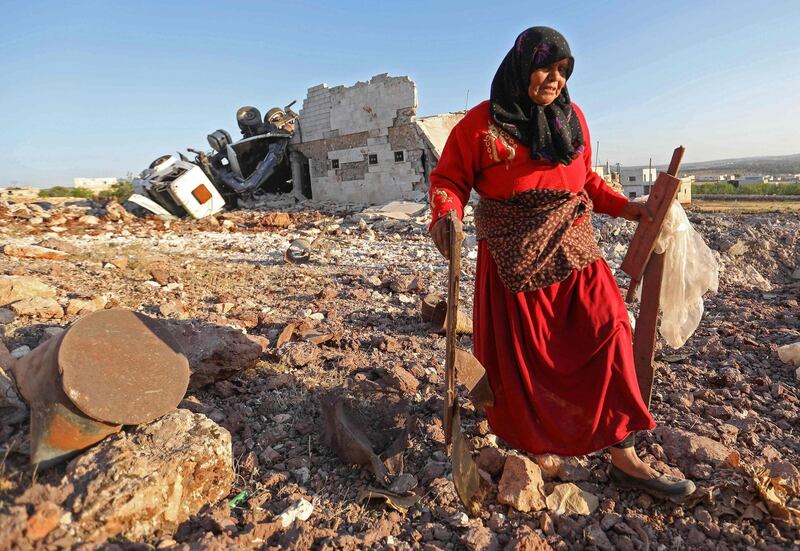Imagine being a civilian in Idlib. You are one of three million trapped in the province. There is a 50 per cent chance that you were forced to leave your home elsewhere in Syria to seek refuge from the war. Perhaps you were among the 30,000 who fled Aleppo after surviving the Assad regime's barrel bombs and Russian bunker busters. Maybe you came from eastern Ghouta, choosing exile over the rule of those who launched deadly chlorine gas attacks against your family and friends.
You might be one of the hundreds of thousands who have slept rough through this year's bitingly cold winter in camps for the displaced, near the Turkish border. Over the past three weeks, a staggering 180,000 more people joined you, uprooted by renewed violence between opposition rebels and extremists and the Syrian government, aided by its Russian ally.
Perhaps you have children. In Idlib, a quarter of a million kids of school age have been affected by the conflict, 45,000 are not in formal education, and 80,000 have been forced from their homes by the recent fighting. According to the charity Save the Children, at least 38 have been killed and 46 injured in Idlib since April 1, including nine who died during an attack on their school.
In fact, many of the 160 people killed in the recent violence were supposed to be in safe places – camps for the internally displaced, clinics, schools.
Maybe you witnessed this first-hand, because you live near a hospital, or worse yet, were being treated in one of the 18 medical facilities that have, in the past three weeks, been bombed by the Syrian government. The NGO Physicians for Human Rights has said that the regime’s systematic offensives against hospitals and clinics amount to war crimes, rising to the level of crimes against humanity.
If you lived in Idlib during the war, you may have also survived a chemical attack, such as the one that killed more than 80 people in the town of Khan Sheikhun. Chlorine gas has been used by the regime against its own people dozens of times over the years – a tactic that has largely been tolerated by the international community.
You also probably have to eke out a living under the brutal rule of the former Al Qaeda affiliate Hayat Tahrir Al Sham, which imposes harsh codes of conduct, assassinates peaceful activists, kidnaps journalists and has usurped the revolution that you launched when you took to the streets, bare chested, and faced the bullets of the Assad regime.
You have probably witnessed moments of incredible bravery and chilling atrocity. You may have lost loved ones, seen limbs torn from bodies, and children buried under rubble. You have probably marched against tyrants who wore both army fatigues and beards. At this point, you might not even care who wins. You just want the fighting to stop.
Instead, you have to wait for nations to determine whether you live a few more months in what passes for peace these days, or face the inevitable bloodshed now. Following the Assad regime’s clawing back of territory via sieges and war crimes, supported by Tehran and Moscow, you now live in the last province of Syria outside of government control.
You breathed a sigh of relief last September, when, in the 11th-hour, Turkey negotiated a deal with Russia – drawn up in the halls of foreign capitals while you sat thousands of miles away, stripped of any influence on your own future.
Even then, you knew that the respite was just that; that the reckoning would come, sooner or later. It wasn’t like the status quo was sustainable. The Assad regime wanted to capitalise on its momentum and would use the excuse of fighting Hayat Tahrir Al Sham to crush Idlib sooner or later.
Perhaps it would all happen at once, as in Aleppo and Ghouta. Maybe the regime, the Russians and the Iranians would slowly chip away at your land, seizing a town here and a village there, in exchange for Turkey taking over territory elsewhere. More regional politicking in which you would be mere collateral, used to further the imperial ambitions of others.
In the end, it won’t matter. Nobody will stand up for you. You will try to flee, but you will find yourself squeezed between the advancing militias of a totalitarian state, extremist groups and the closed gates of the northern border.
You are a civilian in Idlib, one of three million, and the world has decided that none of you matter.





